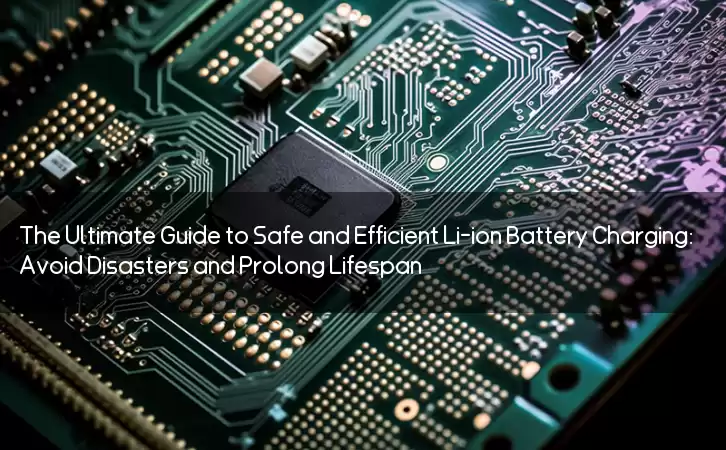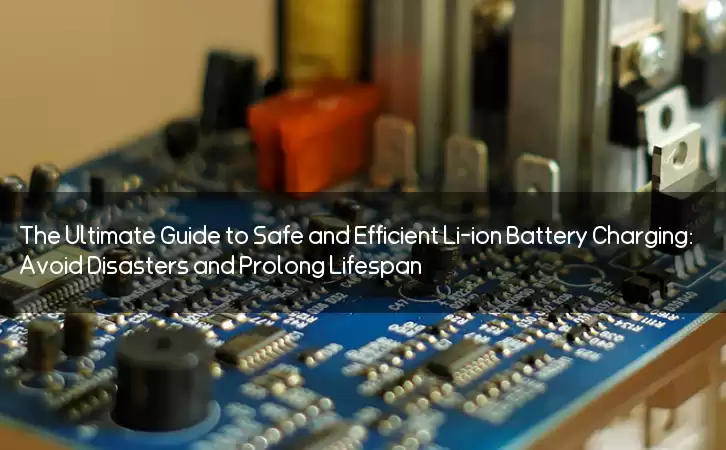Information Center
The Ultimate Guide to Safe and Efficient Li-ion Battery Charging: Avoid Disasters and Prolong Lifespan
Published:2023-07-23 10:31:24 Author:Green WCND Views:71Li-ion Battery Charger Instructions: A Guide to Safe and Efficient Charging

Li-ion batteries have become the preferred choice for powering our portable devices, such as smartphones, laptops, and electric vehicles. With their high energy density and long service life, Li-ion batteries are ubiquitous in our daily lives. However, to make the most of your Li-ion battery, you need a reliable and efficient charger that can charge your battery quickly and safely. In this article, we will provide you with some essential instructions for using a Li-ion battery charger.

Firstly, it is important to choose the right charger that is compatible with your Li-ion battery. Not all chargers are created equal, and using the wrong charger can cause damage to your battery or even pose a fire risk. Each Li-ion battery has a specific voltage and current requirement for charging, which is usually indicated on the battery label or in the product manual. You should choose a charger that matches these specifications and has a reputable brand or certification, such as UL, CE, or CCC, to ensure its quality and safety.
Secondly, before you start charging your Li-ion battery, make sure that the battery and the charger are clean and free of any dust or debris. You can use a clean cloth or a soft brush to remove any dirt or residues that may affect the charging performance or safety. Also, check the charging port and cable connectors for any damages or wear and tear, as this could cause a poor connection or a short circuit during charging.
Thirdly, when you connect the charger to your Li-ion battery, make sure that the polarity is correct. The positive and negative terminals of the battery and charger should match, as reversing the polarity can cause irreversible damage to the battery or even create a safety hazard. Most Li-ion batteries have a protection circuit built-in to prevent overcharging, over-discharging, or short-circuiting, but it is still essential to follow the instructions and avoid any misuse or abuse of the battery and charger.
Fourthly, during the charging process, it is recommended to use the charger in a well-ventilated area and avoid leaving the battery unattended. Li-ion batteries can generate heat when they are charging, and if they become too hot, they can cause thermal runaway or explosion. Therefore, it is advisable to place the battery and charger on a non-flammable surface, away from any combustible materials, and do not cover them with any objects that could trap the heat. Also, if you notice any abnormal behavior, such as smoke, noise, or odor, stop the charging immediately and disconnect the charger from the power source.
Fifthly, when the Li-ion battery is fully charged, disconnect the charger from the battery and unplug it from the wall socket. Do not leave the charger plugged in for an extended period, as this could waste energy and reduce the lifespan of the charger. Also, do not overcharge or undercharge the battery, as this could affect its performance and shorten its service life. Li-ion batteries should be charged to around 80% of their capacity for regular use, and fully charged only when necessary, such as before a long trip or a power outage.
In conclusion, Li-ion battery chargers are essential components for charging and maintaining our portable devices and electric vehicles powered by Li-ion batteries. By following the above instructions and taking precautions, you can ensure that your Li-ion battery and charger are safe, efficient, and long-lasting. Always use a reliable and certified charger, keep the battery and charger clean, follow the polarity and safety instructions, charge in a well-ventilated area, and disconnect the charger when fully charged. With these simple steps, you can enjoy the benefits of Li-ion batteries without any worries or risks.
Power Adapter Design and Customization Guide for Portable Electric KettlesI. Common Design Types for Portable Electric Kettle Power AdaptersPortable electric ke···
I. Common Design Types of Power Adapters External Independent Type (Most Common) Design: A standalone adapter (e.g., "black brick") connected to the p···
Handheld Vacuum Cleaner Power Adapter Selection GuideIntroductionHandheld vacuum cleaners have become a mainstream tool for household cleaning due to their port···
Drill Power Adapter Selection Guide.drill-container { font-family: Arial, sans-serif; line-height: 1.6; max-width: 800px; margin: 0 auto; padding: 20px; } .dril···





